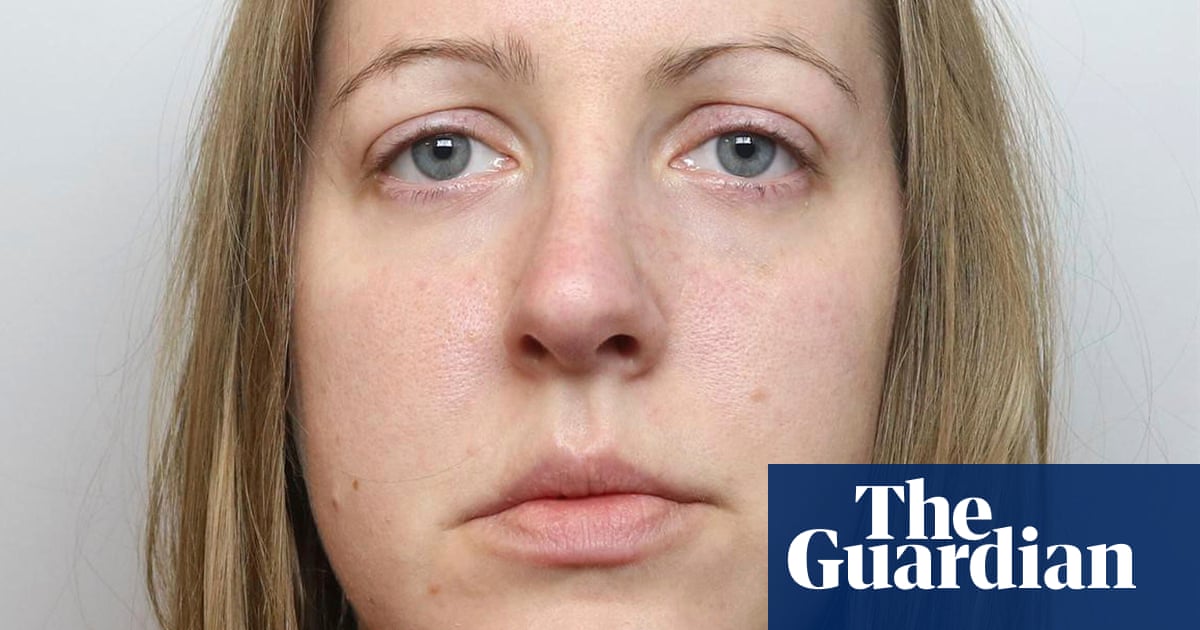Centralscrutinizer
Well-known member
I follow this guy. He offers very good analysis of legal claims, provides commentary on cases etc....
I follow this guy. He offers very good analysis of legal claims, provides commentary on cases etc....
Further to my last post - what you are suggesting is they would potentially pervert the course of justice to assist either the prosecution or defence .If you are an expert for the prosecution - you will seek prosecution.
Same for defence.
They did instruct their own experts - they made a decision not to use them - it is mentioned in the judgement - common sense tells you why they followed this course of action - Their evidence almost certainly would not have helped Letby and may have even helped the prosecution.Nor did they get their own expert opinion to counter or make their own case for her innocence.
You are quite right, and I knew that, bad use of language and mental omission on my part.They did instruct their own experts - they made a decision not to use them - it is mentioned in the judgement - common sense tells you why they followed this course of action - Their evidence almost certainly would not have helped Letby and may have even helped the prosecution.
He has some questionable opinions on two tier policing https://www.youtube.com/watch?v=2FW2k6_AV4EI follow this guy. He offers very good analysis of legal claims, provides commentary on cases etc....
Further to my last post - what you are suggesting is they would potentially pervert the course of justice to assist either the prosecution or defence .
That is not something a reputable expert witness would risk.
If you read the judgment it is obvious that the credentials of the prosecution experts were robustly explored by the defence - That is a lot easier for them to do when they don’t put their own experts forward.I’ve already said the prosecution expert could be the real deal.
A risk of what?I’m suggesting there is a risk.
This is really really easy.If you read the judgment it is obvious that the credentials of the prosecution experts were robustly explored by the defence - That is a lot easier for them to do when they don’t put their own experts forward.
A risk of what?
An expert providing evidence for the prosecution in this case will have been aware that their evidence will have been subject to intense scrutiny and where appropriate robustly challenged. I would suggest the natural instinct would be to err on the side of caution - Which is what expert witnesses tend to do.
I agree there is a risk, there is always a risk.This is really really easy.
You think there is no risk of the expert being wrong or the expert being unconsciously bias.
I think both those risks exist.


You aren't still claiming that most cases are based largely on circumstantial evidence. They are not and in fact it is very rare for a case to be based almost solely on circumstantial evidence.Not sure why you have put quotes around experts, they where experts and as I pointed out weeks ago nearly every conviction is reliant on circumstantial evidence.
People need to understand this, just because you say evidence is circumstantial does not make it less convincing and the appeal court assessed the expert witness and concluded he was one of the best neonatal specialists in the country. It is the defences job to cast shade and place doubt but people should actually read the court transcripts before throwing shade at highly professional experts with no axe to grind.
If he advised the defence and provided numerous reports the question needs to be asked -Sadly, in general, the phrase ‘conspiracy theorist’ has been hijacked by those who don’t like any challenge.
I would hope it is recognised this expert doesn’t fall into that category.
If he advised the defence and provided numerous reports the question needs to be asked -
Where are these reports?
Are you prepared to disclose them?
Why if the prosecution evidence was so flawed and misleading did you not give evidence to contradict this evidence? he will almost certainly have had sight and f the prosecution evidence prior to the trial
It is easy to write a letter, why did he not give evidence?
Most cases use it and to some extent rely on it, which is factual.You aren't still claiming that most cases are based largely on circumstantial evidence. They are not and in fact it is very rare for a case to be based almost solely on circumstantial evidence.
I did tell you this earlier in this thread.
A study done in 2019 by the criminal case review commission looked at 1444 cases were looked at between 2014 and 2018 and only 14%, 202 cases were based mostly on circumstantial evidence.
Most cases use circumstantial evidence, very few really mostly on circumstantial evidence.
Most cases use it very few rely on it. That's the fact, not what you posted.Most cases use it and to some extent rely on it, which is factual.
The issue on this thread is people think circumstantial = poor evidence and that is not the case. Amateur sleuths who have seen to many court room American movies hear circumstantial and their head goes "objection".
Would be interested to see your source for your claim, not doubting it just interested to know the specifics.
The defence KC is very experienced and had been involved in numerous complex trials (You can read about him)And, there remain huge questions (stated frequently on here) about the defence team tactics.
Summarised - if they have cocked up it may have meant relevant evidence has not been given for the jury to consider. Note ‘may’.
The defence KC is very experienced and had been involved in numerous complex trials (You can read about him)
Are you suggesting that he had a witness who was capable of proving the evidence of the prosecution expert witness was flawed and misleading but he decided not to use this witness. At the very least this witness seems to be capable of casting serious doubt about the evidence of the prosecution expert witness but he still does not use him!!
Experienced KC’S do at times make mistakes but this would be fundamental mistake where he will have had ample time to consider the pros and cons of using the witness so it unlikely he made a mistake in these circumstances.
I was responding to the Guardian saying she was middle class. I can't comment on upbringing. If the Guardian gets her background wrong it does suggest they either don't know enough about her or trying to paint a picture of a privileged up bringing.Does not mean she did not have a great upbringing though.
Most cases rely on a combination of evidence yes, but circumstantial evidence features very prominently within that. My statement that most conviction rely on circumstantial evidence did not state solely and is correct! I have provided some sources below that talk about the validity, importance and use of circumstantial evidence below to evidence my claims.Most cases use it very few rely on it. That's the fact, not what you posted.
Circumstantial evidence is not poor evidence, you are right, but it's much weaker than direct evidence.
The evidence that letby was on shift for some of the deaths but not others is weak evidence. The way it was presented by the prosecution was also misleading.
Whether evidence is circumstantial or not it has to reach the bar of beyond reasonable doubt. That means, in practical terms, that if two sets of facts fit a piece of evidence equally, the jury should accept the fact that supports the defendents innocence. It's much harder to reach that bar with circumstantial evidence.

 www.apa.org
www.apa.org

